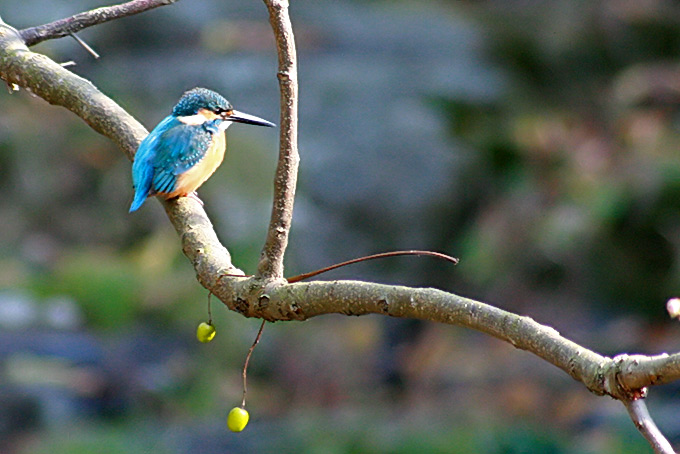 | E-mail to Birds Korea |
 | KWBS |
in the Region
 | The Oriental Bird Club |
 | BirdLife International (Asia) |
December
Periods of intense cold alternate with milder spells. In the coldest winters maxima are often below freezing; in milder years (increasingly regularly) maxima often reach 10°C in Seoul: a few lingering autumn migrants can still sometimes be found as well as huge numbers of wintering waterbirds.
A great time for a winter bird tour or a couple of days in the right areas. Saunders’s Gulls are widespread, while very small numbers of Relict Gulls also start to appear at a number of sites, especially in cold winters. Scaly-sided Merganser move southward onto unfrozen rivers, while numbers of Baikal Teal remain at their peak - often dispersing southward from Seosan, along with large numbers of Greater White-fronted and Thick-billed Bean Geese with the onset of subzero temperatures. Taiga Beans too can be found in the low thousands at Woopo, Joonam and in the Nakdong Estuary in the southeast, the mildest part of the mainland. Raptors include good numbers of Cinereous Vulture in the Cheorwon Basin, where they are often joined by White-tailed and even Steller’s Sea Eagles, while cranes (Red-crowned, Hooded, and White-naped), also remain at key sites. Passerines include occasionally numerous Brambling, mixed flocks of Naumann’s and Dusky Thrushes and in some winters large numbers of Siberian Accentor. Species such as White’s and Pale Thrush, Japanese Bush Warbler, Red-flanked Bluetail and Japanese White-eye also remain in reasonable numbers on Jeju Island and in the far southeast.
Highlights in recent years have included irruptions of Chinese Nuthatch, and records of Sandhill Crane, Siberian White Crane and Cackling Goose. Recent national firsts have included Grass Owl in 2003 and Meadow Pipit in 2006, both on Heuksan Island, and Korea’s first Lesser Black-backed Gull at Yubu Island in the Geum Estuary in 2008.
(The following records are a compilation of our own sightings and records sent in by other observers. As well as being posted on the Birds Korea website(s), selected records are also forwarded to other Korean-language birding websites; records of threatened species are arranged and forwarded to Birdlife International and national authorities when appropriate; flag images and records are passed to bodies responsible for their coordination throughout the flyway; and all records sent to us are used to compile annual reports and to support the evolving understanding of the status of many of Korea’s birds.)
Cheoneunsa, December 31
On our way through Jirisan National Park, we stopped in at Cheoneunsa to count the Hill Pigeon. A minimum of 15 were seen.

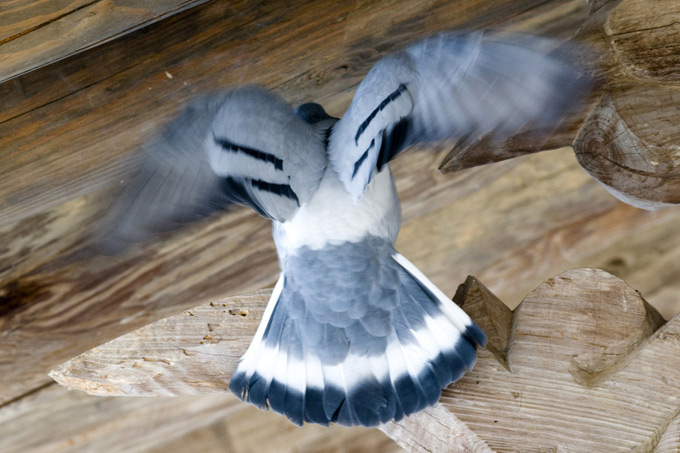
Eulsukdo-Pusan, December 28-29
It turned out to be a VERY nice two day birding stint, upon observation of the snowy weather conditions for most of Korea. The weather was a bit chilly and breezy with wonderful sunshine. Here are the following highlights that provided a good day’s birding, I thought: 8 Dusky Thrush, 25 Great Creasted Grebe, 30 Red-Breasted Merganser, 8 Eurasian Spoonbill, 400 Whooper Swan, 2 White-Tailed Eagle, 2 Common Buzzard, 2 Hen Harrier, 8 Siberian Accentor, 2 Northern Long-eared Owl, 200 Bean Goose, 4 Daurian Redstart, 2 Japanese Quail, Massive numbers of Mallard, Pintail, Eastern Spot-billed Duck, Common Goldeneye, Gadwall, and Eurasian Wigeon.
Oh yeah, I also stumbled upon (quite literally) upon a rather playful Hoopoe. Before I left the area, I decided to scout out the mudflat blind at the southern end of the island. It seems that ’they’ are massively reconstructing the natural habitats near the new super highway. I am not sure how the birds feel about it but I’m kind of aprehensive. No sooner had I gotten to the mudflat blind, I heard a wild frenzied commotion of Whooper, Gadwall, Mallard and Pintail. It seems that the Migratory Bird Center has taken it upon themselves to feeding the birds. it keeps them near the blind for observation… Naturally, I am not sure they would be ’there’, so close…in a staged area.
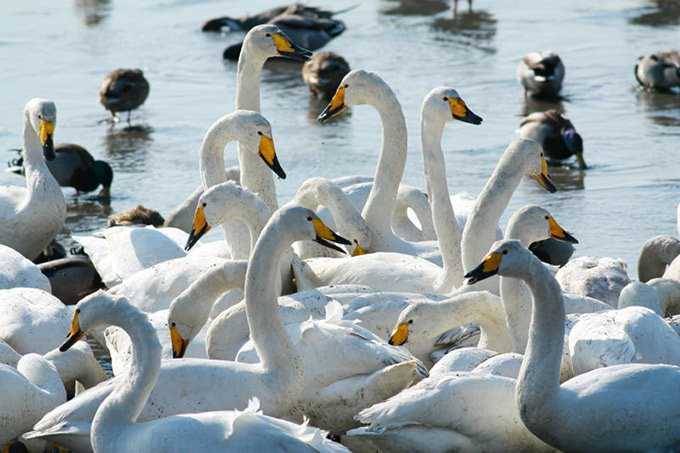
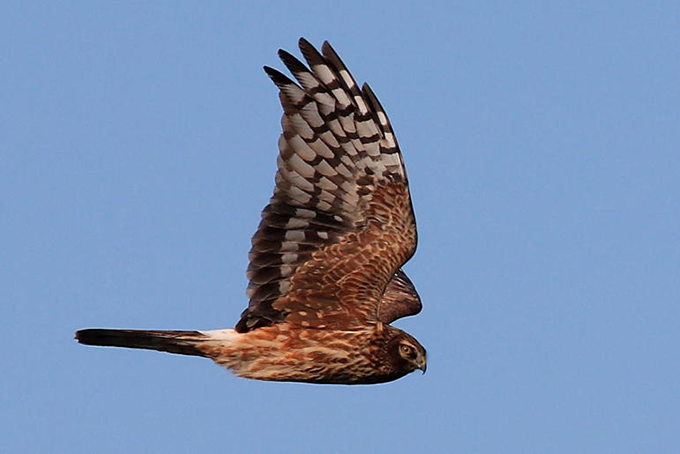
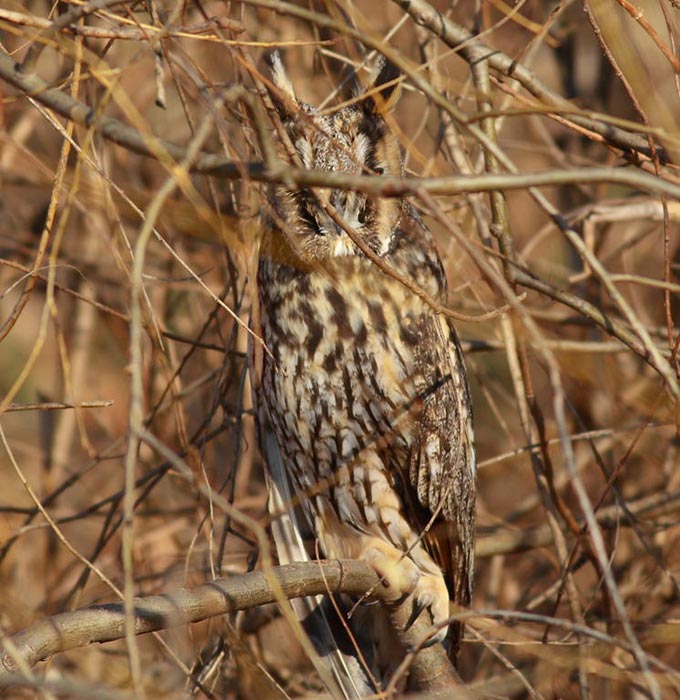
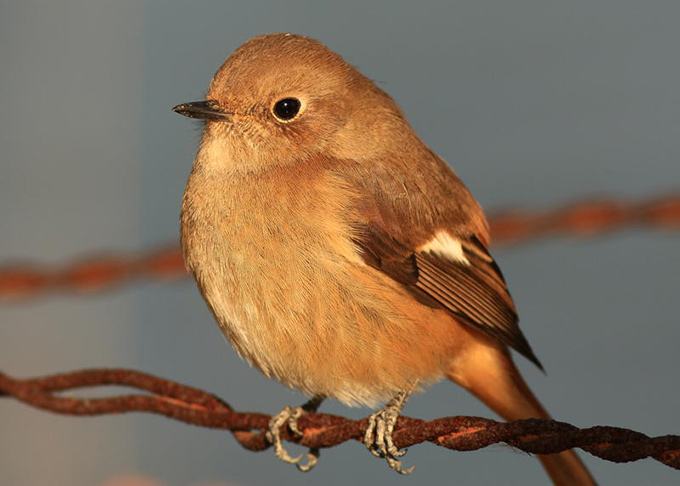

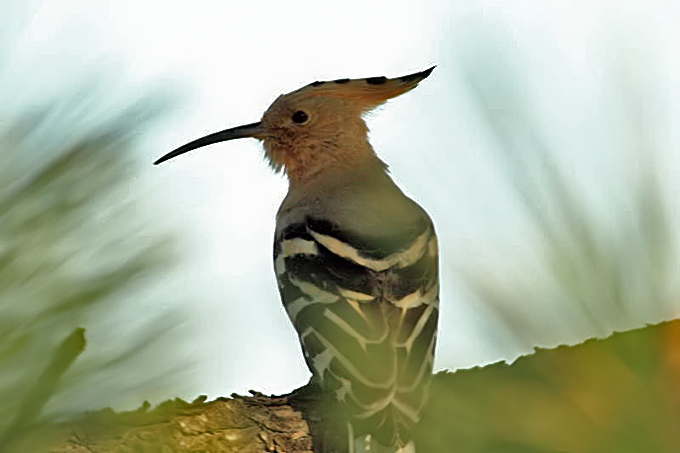
Hakdong, Geoje Island, December 25-27
A Christmas break in the small town of Hakdong, on Geoje Island, was productive for a number of resident and wintering birds. In Hakdong Bay, the following species were observed: 2 Black-throated Diver, 3 Black-necked Grebe, c.20 Slavonian Grebe, c.20 Red-breasted Merganser, and 1 Ancient Murrelet. Black-tailed Gull, Slaty-backed Gull, Vega Gull, Black-headed Gull, Great Crested Grebe, Temminck's Cormorant and Grey Heron were also present.
2 Blue Rock Thrush were present on rocks and quaysides around the edge of the bay, while small areas of woodland just behind the bay produced plenty of birds including Red-flanked Bluetail, Grey-capped Greenfinch, Olive-backed Pipit, Japanese White-eye, Grey-headed Woodpecker, Japanese Pygmy Woodpecker, Yellow-throated Bunting, and Daurian Redstart. Several Eastern Buzzards were in the area, while a Cinereous Vulture was seen from the window of the bus further north on Geoje during our return journey on 27th.
Yeongsan barrage, December 27
A walk in the morning sun with freezing temperatures and strong wind showed the expected 300+ Eurasian Coot along with 42 Eastern Spot-billed Duck, 67 Mallard, 26 Gadwall and 5 Eurasian Teal. More surprising the big number of 114 Tufted Duck - last winter it was about 30 - and a Common Pochard in the distance. Also seen were 6 Great Crested Grebe, 4 Little Egret, 2 Grey Heron, 4 Great Cormorants, 2 Common Sandpiper, 9 Dunlin and a handful Black-headed Gulls circling above the place.
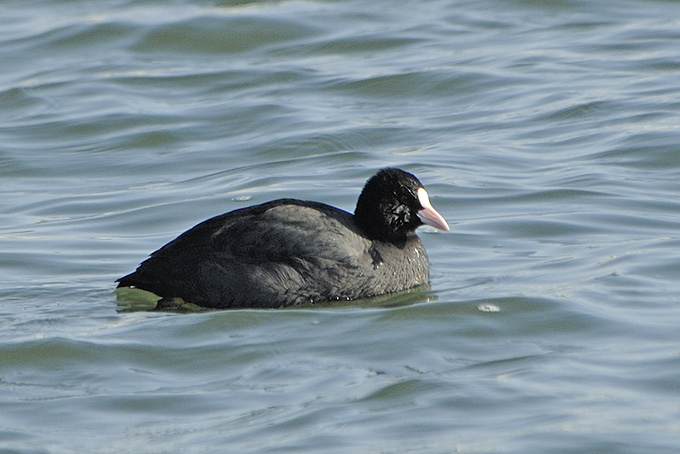
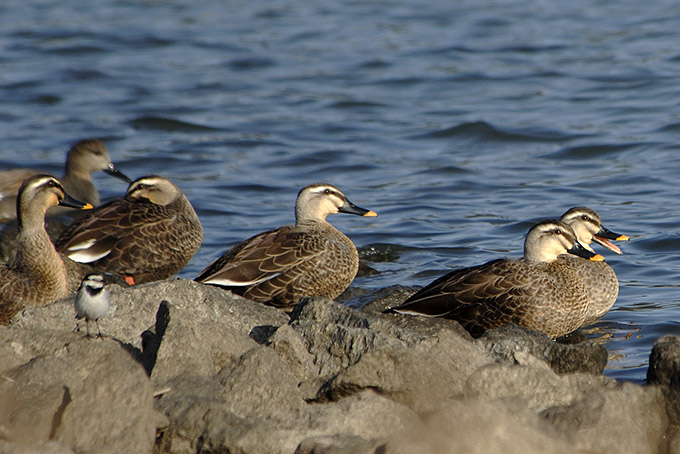
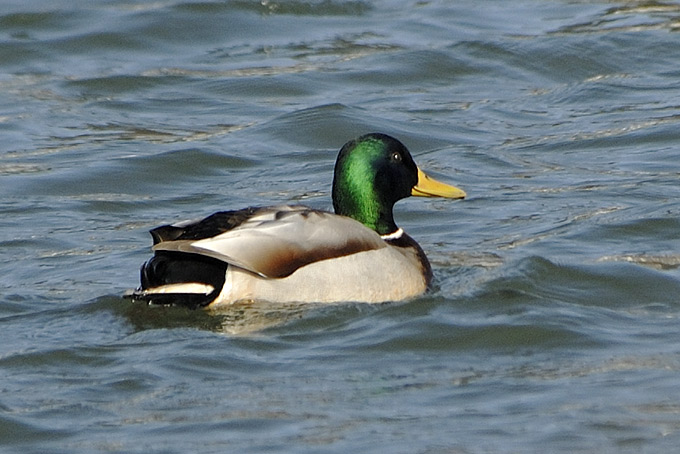

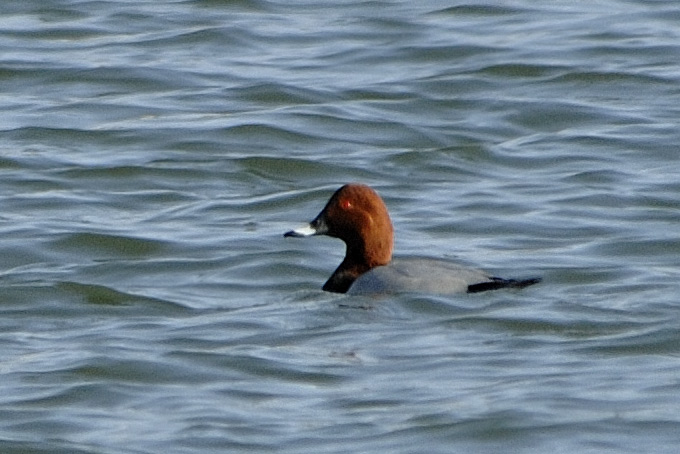


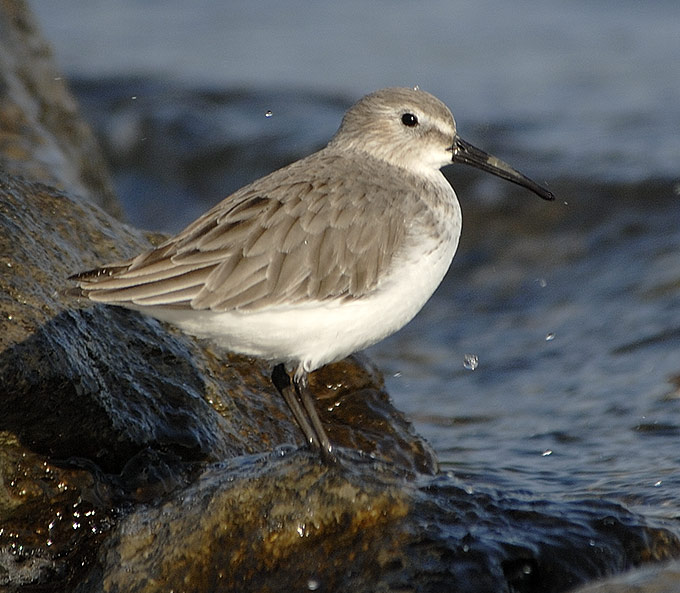
Gangjin Bay, December 26
An afternoon trip to the Gangjin Bay in sunny weather with very strong and ice-cold wind revealed c. 500 Whooper Swan along the northern part of the bay accompanied by c. 100 Eastern Spot-billed Duck and 40+ Mallard. Also seen were 6 Common Merganser, 4 Grey Heron and 2 Common Sandpiper. Almost overlooked a flock of 148 Dunlin which squatted in troughs to kept out of the wind. Close by in total c. 30 Kentish Plover. In adjacent fields a flock of 103 Oriental Turtle Dove sat on wires and birds constantly moved onto the field for feeding. Also seen 9 Olive-backed Pipit, 20+ Yellow-throated Bunting and a few Grey-capped Greenfinch.
On the downside an area which was used by Dunlins and Little Terns (flocks of c.150 had been seen) is now the Gangjin Baseball Centre.
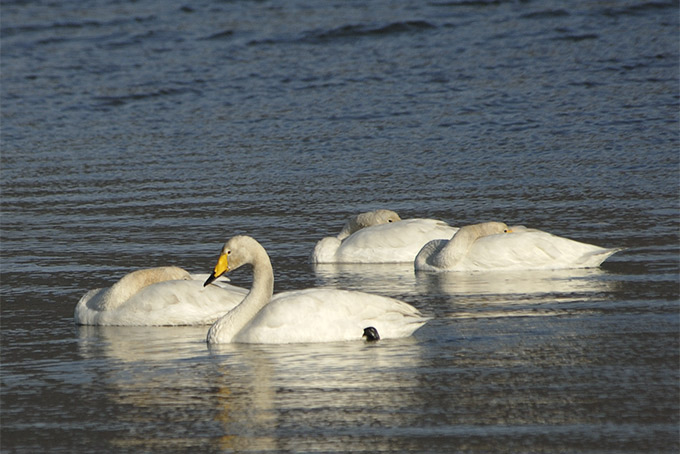


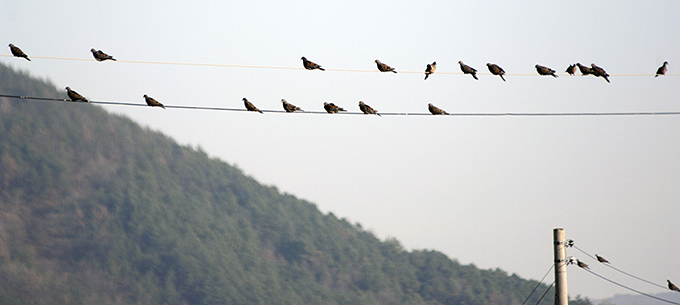

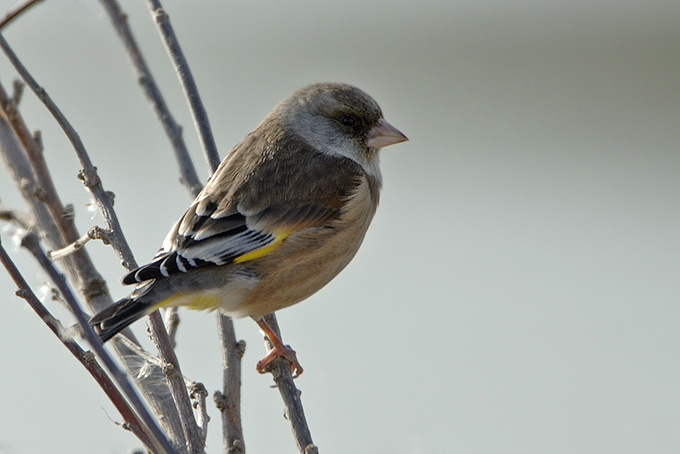
Ganghwa do, December 23
I am not sure how much longer I would like to visit this once peaceful rustic getaway island. In recent months there has been extensive de-forestation, home clearing & massive road construction between Onsuri & Sundori/JangHeungri. Along the way to Sundori, I was able to id the following: 6 Hawfinch, 5 Siberian Accentor, 12 Rustic & Yellow throated Bunting, 3 Common Buzzard, 1 Eastern Marsh Harrier, 6 Greater White-Fronted Geese in a mix of 250 Bean Goose, and 12 Grey Plover in the midst of 40 Dunlin.


Seogwipo, Jeju island, December 22
There has been an 'explosion' of Olive-backed Pipits and Japanese Bush Warblers in a small Seogwipo park, with about 10 of each seen by river's edge. A lone and seemingly exhausted female Baikal Teal (a personal first for Jeju) tried to keep up with 21 Spot-billed Ducks.
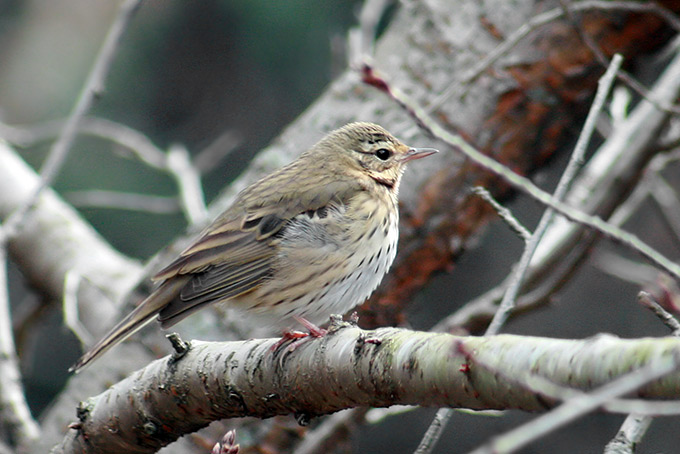

Junam Reservoir, December 22
Junam again came up with the goods in the form of a stunning Red-crowned Crane which gave excellent views near the spit. Three Pallas's Reed Buntings also showed briefly on nearby reed heads while I was watching the Crane. Both of the regular White-tailed Eagles were also present.
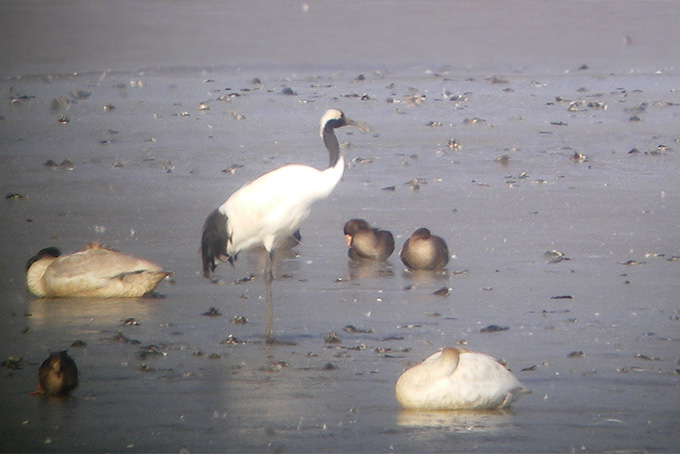
Sacheon estuary, December 21
A leisurely two-hour morning drive along the upper Sacheon estuary yielded numerous birds on a freezing sunny day. After passing a few Common Pochard and some 30 Eurasian Wigeon, a pair of Northern Pintail and two pairs of Common Goldeneye, I came across a flock of about 50 Common Shelducks resting on a distant sandbank in the estuary. A few gulls, Little Grebe and Mallard were present, and I also saw a pair of Common Mergansers, followed by a pair of Red-breasted Mergansers. Driving inland I saw a Common Sandpiper, a pair of White Wagtails and five cold-looking Oriental Greenfinches huddled in a bush. Then I passed a small frozen lake some 4 km from Sacheon with at least 200 Mallard resting on the ice. A quick run up the small river in Sacheon showed plentiful Eastern Spot-billed Duck and one Northern Pintail; and on the way home a resident Common Kingfisher refused to be photographed once again by his stream! Just short of Jinju, I passed under some 70 Cinereous Vultures obviously onto something tasty.
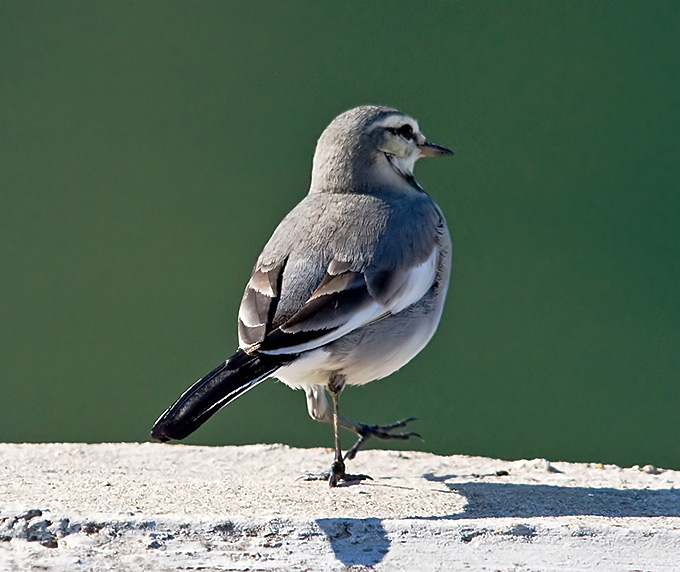
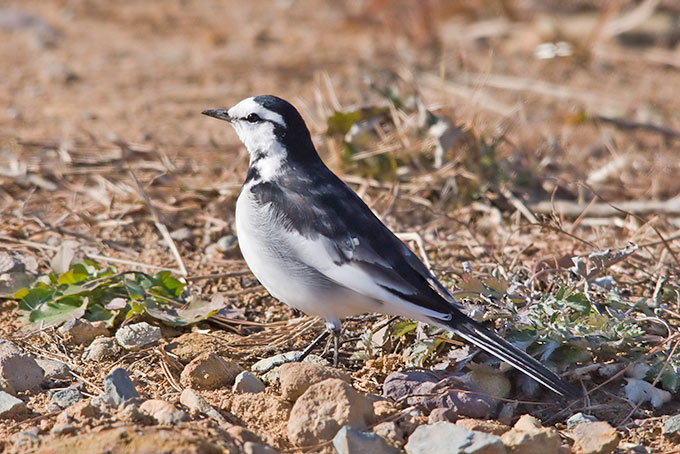
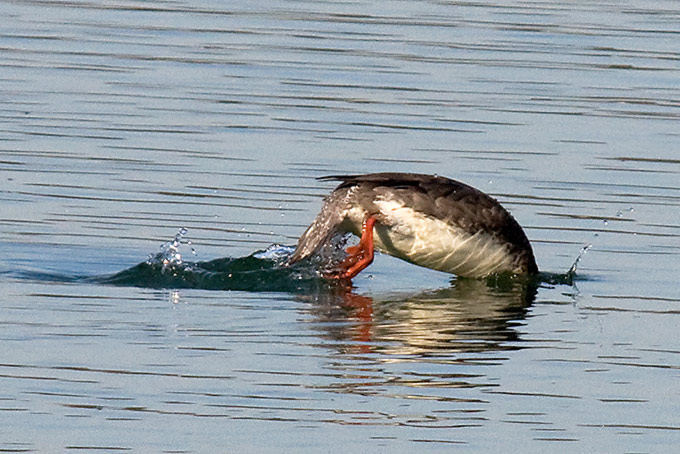
Goseong County x Songji Lagoon, Ganseong Nam Cheon and coast to Geojin, December 21
I was videoed by KBS2 on December 18 to make a documentary. As part of the documentary, the cameraman wanted to film me birdwatching. I took him to Ganseong Nam Cheon, the small river I can see from my apartment. Due to the recent cold weather, a lot of the water was covered in ice, but between the last weir and the coast there were around 500 birds, including about 470 Mallards, 20 Spot-billed Ducks, 9 Common Goldeneyes, 7 Whooper Swans, 4 Common Teal, 2 Grey Herons, a Pintail, a Smew and a Greater Scaup.
After the cameraman left I had a look at what I could see off the beach near the mouth of the creek. I saw around 400 Great Crested Grebes, 30 White-winged Scoters, 20 Red-breasted Mergansers and 20 Common Gulls.
Sunday afternoon December 20 I had time to do some more birdwatching with 2 birdwatching friends from Sokcho. We drove around the west side of Songji Lagoon. There was a lot of ice there too, but in the open water we saw 13 Mute Swans. Unfortunately, I didn't have my camera equipment to get photos. From there we went north towards Geojin, after stopping to pick up my camera and scope. Just off the beach south of Geojin we saw 7 American Scoters, 24 Great Crested Grebes, 22 White-winged Scoters, 6 Common Mergansers and 3 Common Goldeneyes. We saw quite a number of Spot-billed Ducks just south of Geojin Habour and some Mallards and gulls. To the north of Geojin near the rocks we saw 30 Black-necked Grebes, 4 Ancient Murrelets and a Harlequin Duck. There were gulls around as well.


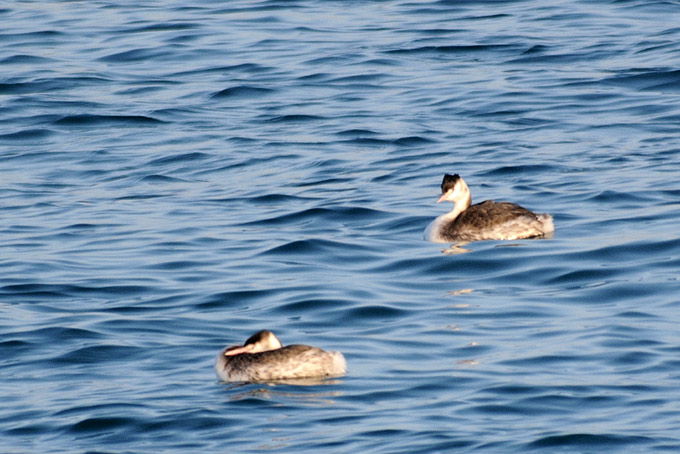
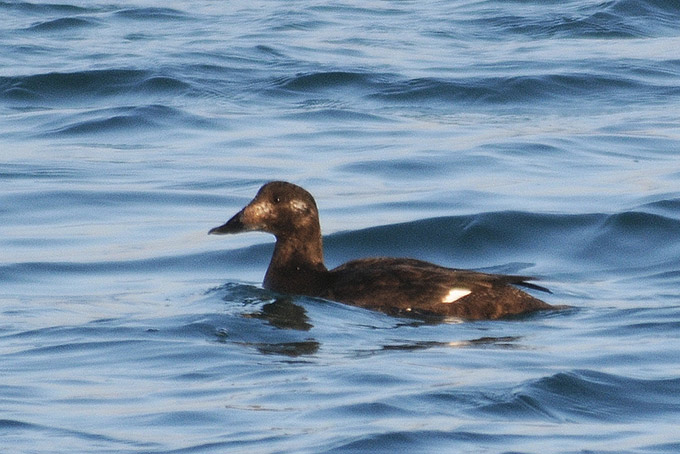
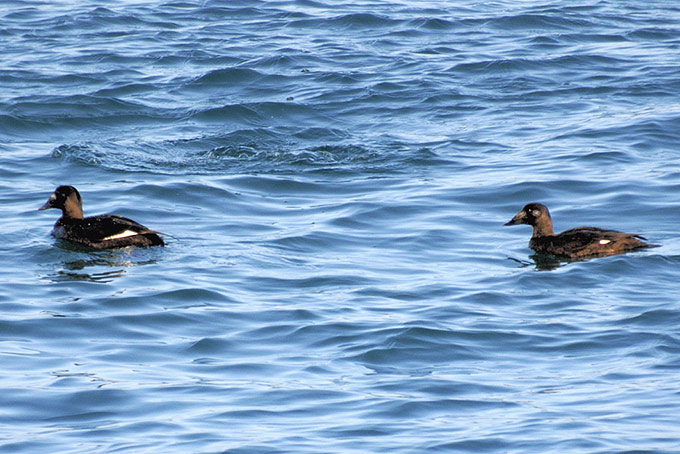
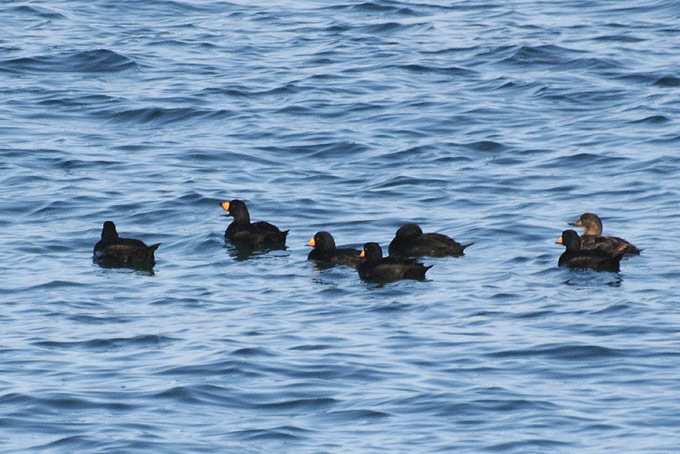
Southwest coast, Jeju island, December 20
A chilly and cloudy day on Jeju, but as is always the case when birding with Mr. Kim, the day was full of great birding and and interesting local bird knowledge. West of Jungmun, about 70 Mandarin Duck were spotted on a quiet river, along with handfuls of Little Grebe, Spot-billed Duck, Mallard, and Green-winged Teal. On the coast, hundreds more Spot-billed, and 2 Great Crested Grebe. About 50 Far Eastern Skylark foraged in a farmer's field near Moseulpo. Near Hwasun, no luck finding a reported Asian Short-toed Lark. On a tiny hill nearby, we had similar bad luck when trying to spot Long-tailed Shrikes that I was surprised to learn live there all year. In fading light, we came upon 32 Red-billed Starlings perched on power lines. I was equally suprised when Mr. Kim told me that this species can also be found year-round on Jeju.
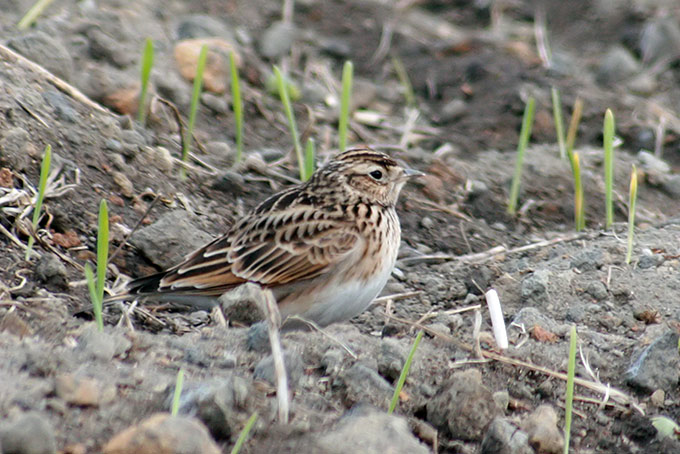

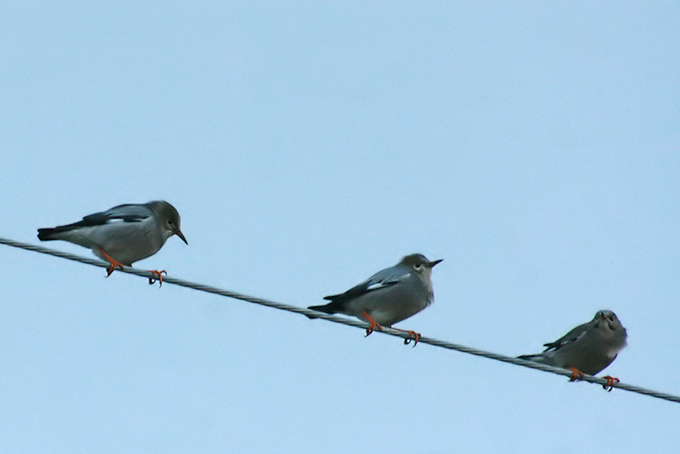
Junam Reservoir, December 18
A walk along the minor road leading towards the dam at the southern end of Junam Reservoir was most productive. 2+ Naumann's Thrushes were among a flock of c.30 Dusky Thrushes resting in treetops beside the reservoir. A Hawfinch in the persimmon trees along here was a site tick for me, and a little further along the road, a Grey-headed Woodpecker was seen and c.12 Black-crowned Night Herons roosted in trees. Both the adult and the juvenile White-tailed Eagle appeared overhead at different times. The reservoir itself was partially frozen this morning and most wildfowl were on the other side of the reservoir a long way from the path, but 4 drake Common Mergansers and a female Goldeneye were noted among the rafts of distant Smew.
Gangneung, December 17
A quick run out to the East Coast and cold, high winds and high waves. Conditions made sea-watching difficult, but even after a few stops at various jetties and piers it was apparent that Ancient Murrelets were in good numbers, with about 700 seen during only brief scans. Other birds were several Black-necked and Great Crested Grebes, 8 Whooper Swans, about 30 Greater Scaups, a few Smews, Pochards, Goldeneyes and Common Mergansers, a single Glaucous Gull, a dozen Oriental Greenfinches, one calling Siberian Accentor and a few calling Daurian Redstarts.
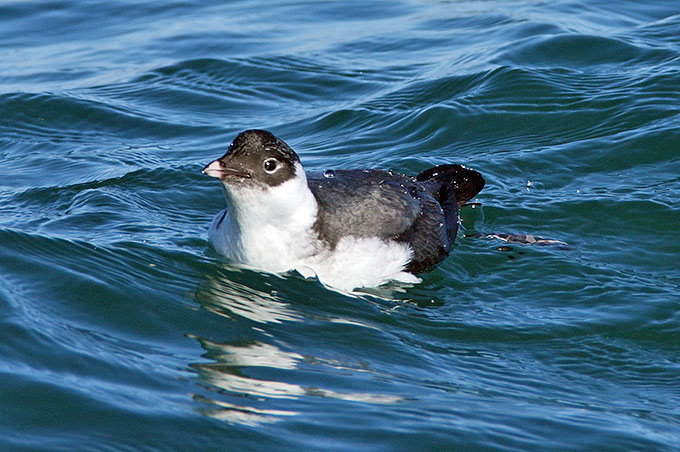
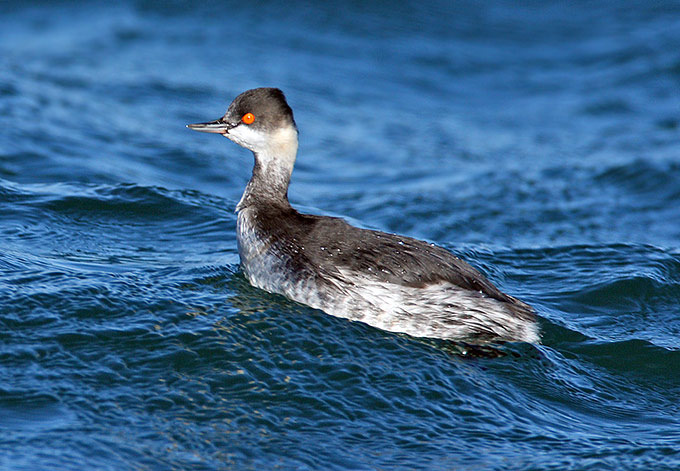
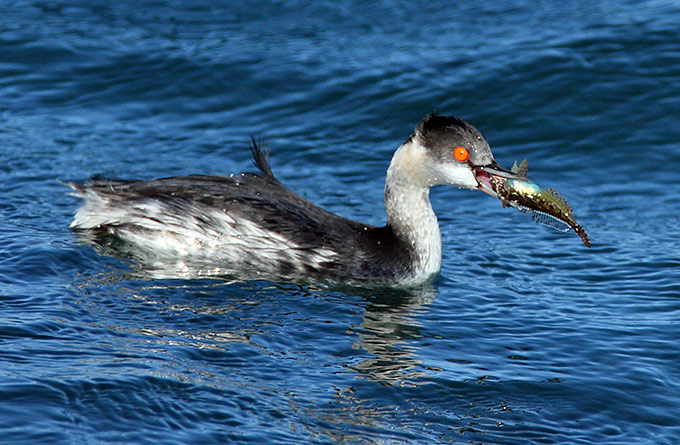
Northeast River, December 15
I took my annual pilgrimage to the Scaly-sided Mergansers and found, just after dawn, the same seven birds that N.M., S.G. and K.G. saw last week. Other birds were a few Common Mergansers, a single Common Pochard, some Spot-billed Ducks and a Mallard, about a dozen Goldeneyes, a Little Grebe, a White-tailed Eagle, a Eurasian Sparrowhawk, an Eastern Buzzard, 2 Japanese Wagtails, a single Brown Dipper, some Rustic and Yellow-throated Buntings, the resident flock of Vinous-throated Parrotbills, and a few Great and Longtailed (heard) Tits. No sign of Long-billed Plovers this year; the all terrain vehicle wasteland seems to have been extended, and the Plovers have probably been forced away.

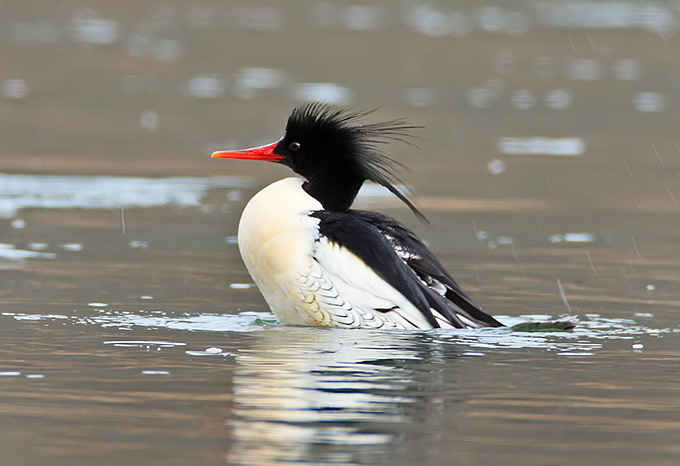
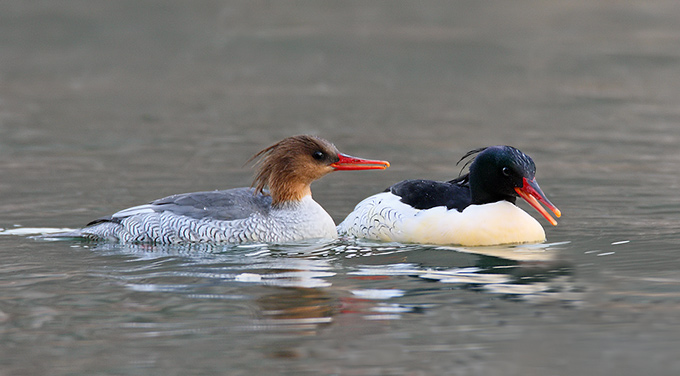
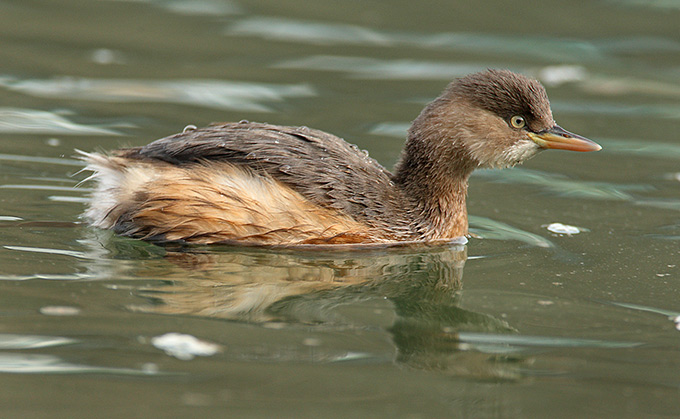
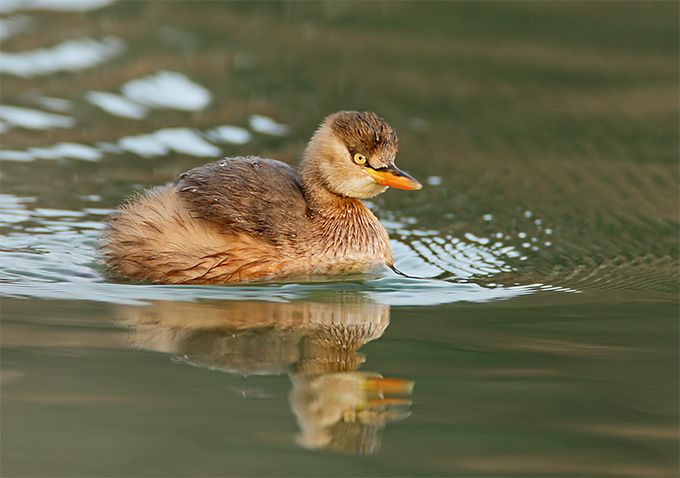

Junam Reservoir, December 15
Two Cinereous Vultures passed overhead, heading in a southwesterly direction. There were two White-tailed Eagles perched on the spit - what was presumably the regular juvenile bird was joined by an adult. A probable Eastern Buzzard was seen briefly from the bus on the way back to Changwon, about 1km away from the reservoir. Two Common Shelducks were present on the reservoir, and eight Swan Geese were counted. A Korean birdwatcher showed me video footage of a hybrid Tundra/Whistling Swan that had been present earlier this morning. Three Barn Swallows were again present on their usual building at the road junction despite the bitterly cold conditions today. On December 12, I counted 58 White-naped Cranes during a mainly non-birding visit to the reservoir.
Seosan Lakes and Yedan Reservoir, December 13
In thinly overcast conditions, several hours at Seosan Lake A (where bridge construction continues) and rather less time at Lake B (where many recreational fishers and resort development also continues). Highlights included decent views of Ruddy Shelduck (c 20 seen in total), excellent views of an Ochre-rumped Bunting, c 60 Hooded Crane and 70 Eurasian Spoonbill on A, and a single Upland Buzzard on B. En route back north, a detour to Yedan Reservoir in Yesan, much changed from a decade before, with now many fishing huts, and a “modified” south end, but happily still 80 Mandarin Duck (c the 160th species recorded during the week) and excellent views of a small group of Falcated Duck, several of which were displaying in the late afternoon sunshine.
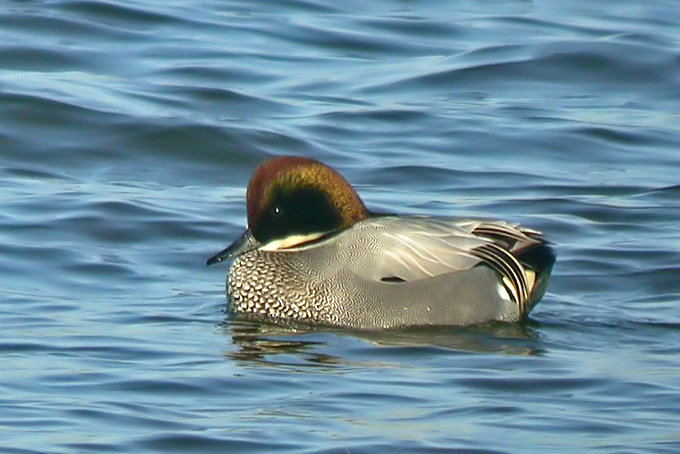
Namdae Cheon and Sokcho wetlands, December 13
I went to Yangyang Sunday morning to see what birds I could find. It was quite overcast and grey first thing in the morning but there were plenty of birds around. In the trees on and near the floodbank I saw Rustic Buntings, Pallas's Reed Buntings, Yellow-throated Buntings, Great Tits, Long-tailed Tits, Daurian Redstarts, Grey-capped Greenfinches, Long-tailed Rosefinches and Brown-eared Bulbuls. On the sandbar by the sea and in the lower reaches of the river there were Spot-billed Ducks, Mallards, Common Mergansers, Common Goldeneyes, Coots, Black-tailed Gulls, Vega Gulls, Slaty-backed Gulls, Glaucous Gulls, Great Cormorants, Black-necked Grebes and a Black Brant. Further upstream I added Common Teals to the list of ducks and Vinous-throated Parrotbills to the small passerines. Along the river flats there were Far Eastern Larks, Common Pheasants and Japanese Quails. I observed 7 raptor species in the area, all individual birds, including White-tailed Sea Eagle, Common Buzzard, Rough-leged Buzzard, Northern Goshawk, Eurasian Sparrowhawk, Common Kestrel and Merlin.
The Rough-legged Buzzard was seen perched and flying. In flight it had a white rump and tail with a black subterminal band and white tips above, a dark band across the breast and otherwise pale colour underneath. Perched it had a streaked head and neck, and it wings were speckled white above. It was similar in size to the Common Buzzard that briefly pursued it.
It was also interesting to note some flocks of Brown-eared Bulbuls flying over in a generally southerly direction. One flock had around 100 birds, with 2 smaller flocks of 34 and 16 passing over as well.
After lunch in Sokcho, I walked along Sokcho Beach to the headland at the southern end. There were more than 1000 Common Gulls feeding on small items close to shore, especially near the rocks at both ends of the beach. There were other species of gulls in small numbers with them, including Black-tailed Gulls, Vega Gulls and Slaty-backed Gulls. I was a bit surprised that there were no Great Crested Grebes at Cheongcho Lagoon. Although I didn't do a careful survey of the birds there, I noticed there were lots of gulls, Great Cormorants and Mallard there.

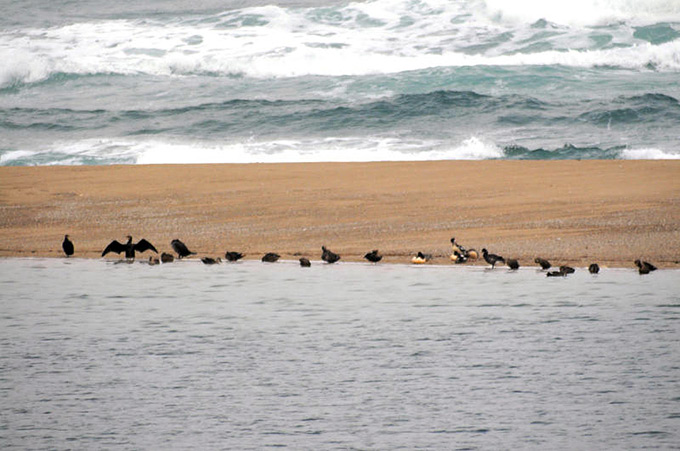
Photo © Barry Heinrich

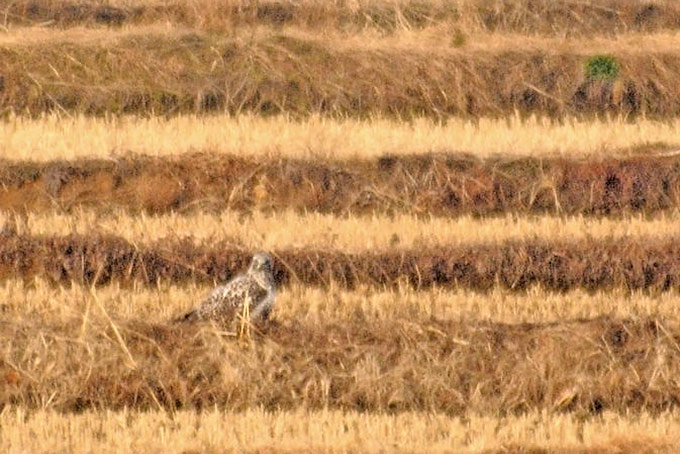
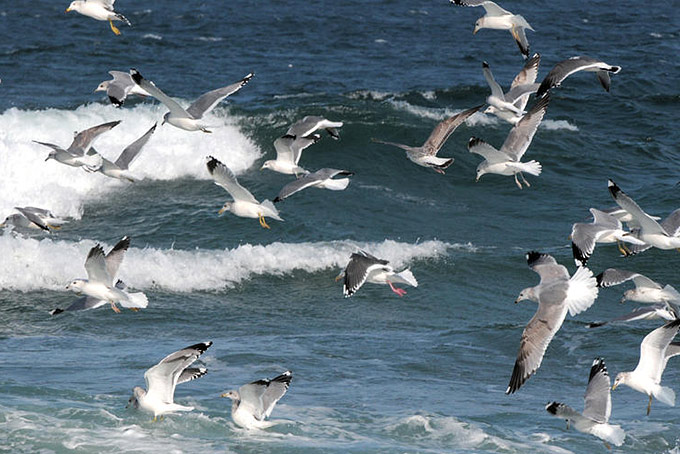
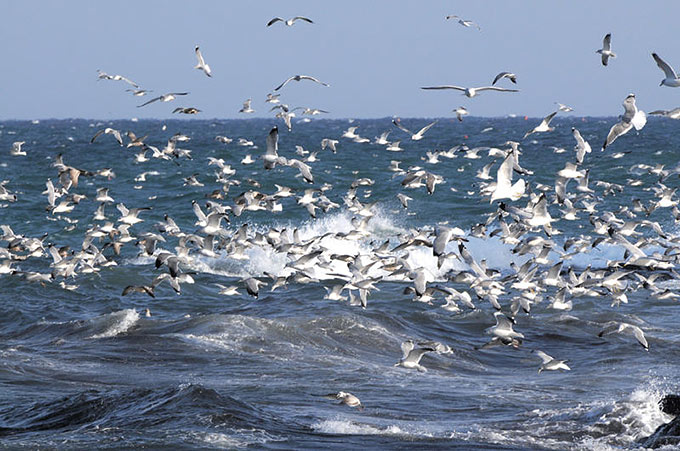

Seogwipo, Jeju island, December 13
Numbers of Mandarin Duck continue to swell on a small secluded river in Seogwipo, with about 45 seen, along with 10 Mallard, about 30 Spot-billed Duck, several Little Grebe, and 3 Eurasian Teal. The male Mandarins seemed to be fighting over the females, puffing up and bumping their chests against each other, and chasing each other off noisily. An Eastern Buzzard watched the ducks from a high perch, until it flew off after being harassed first by Brown-eared Bulbuls, and then by Magpies. The harbor was quiet - the loons and grebes of winter still haven't arrived.

Oksu, December 13
There have been great strides (pun intended) on both sides of the stream leading away from Okksu station, maintenance on the old 'stone' bridge and numerous overpass roads being built. Avian remain faithful but even-more so apprehensive of humans. It was still a good day to see the following: 30 Common Merganser, 100 Tufted Duck, 1 Meadow Bunting, 8 Mandrian Duck, 1 Japanese Quail, 1 Common Kestrel, 16 Northern Shoveler, 16 Great Cormorrant, & good numbers of Mallard, Spot-Billed, Eurasian Teal, and Gadwall.
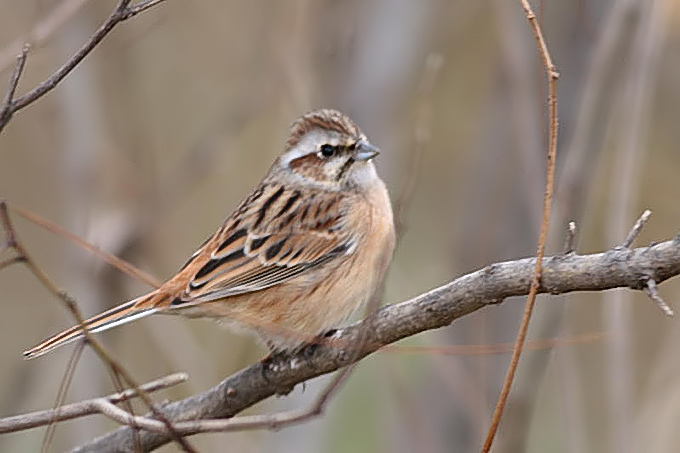
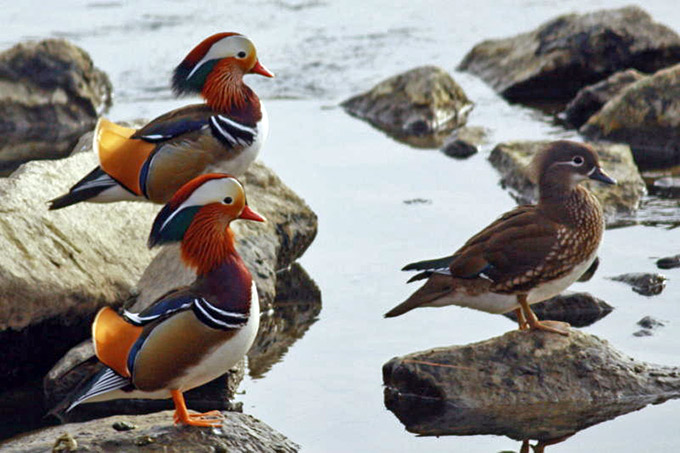

Uiwang, December 13
Little of note on the water today apart from c.50 Taiga Bean Geese. Despite much recent tree clearances for development, a small overgrown orchard remains, where I found 2 Meadow Bunting, a Goldcrest, Long-tailed Tits, an Olive-backed Pipit, the usual Vinous-throated Parrotbills and a juvenile Northern Goshawk gliding overhead.


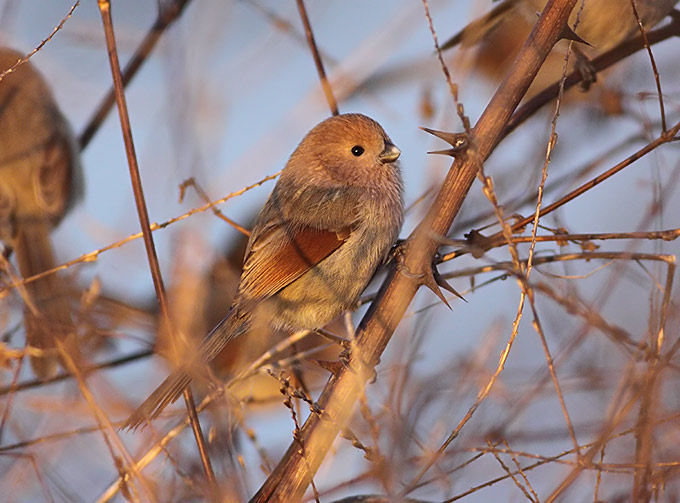
Hampyeong AM; Gomso Bay, Geum River & Saemangeum PM, December 12
Early morning light drizzle gave way to bright sunshine. A search of the reservoir in Hampyeong County used by Black Stork produced no storks, but rather a Red-flanked Bluetail and one or two Pallas’s Leaf Warbler (a first mainland winter record?) seen, along with single Tristram’s Bunting and Eurasian Treecreeper heard. At Gomso Bay, three Oriental Stork were well-seen, as was an Upland Buzzard, and a flock of 6500 Rook which also contained c100 Daurian Jackdaw. Moving northwest in search of the Baikal Teal flock, a quick scan of the Geum River yielded no teal, while areas to the north and south of the Simpo headland in Saemangeum were also rather bird poor, with several Hen Harrier, a few hundred Dunlin and 25 Eastern Oystercatcher the obvious highlights - far less bird-rich now than pre-seawall close back in 2006.

Oksu, December 12
An afternoon stop at the stream-river confluence near Oksu Station: the sky was partly cloudy and the weather cool. Rather fewer ducks than in years past, it seemed: about 200 Tufted Ducks on the Han River, only a few Common Pochards, about 30 Common Mergansers and a lone Great Crested Grebe. Halfway (but no farther this trip) along the stream toward Eungbong, I stopped for 4 Mandarin Ducks, a few more Pochards and Tufted Ducks, 3 or 4 Eurasian Teals and 5 Northern Pintails.

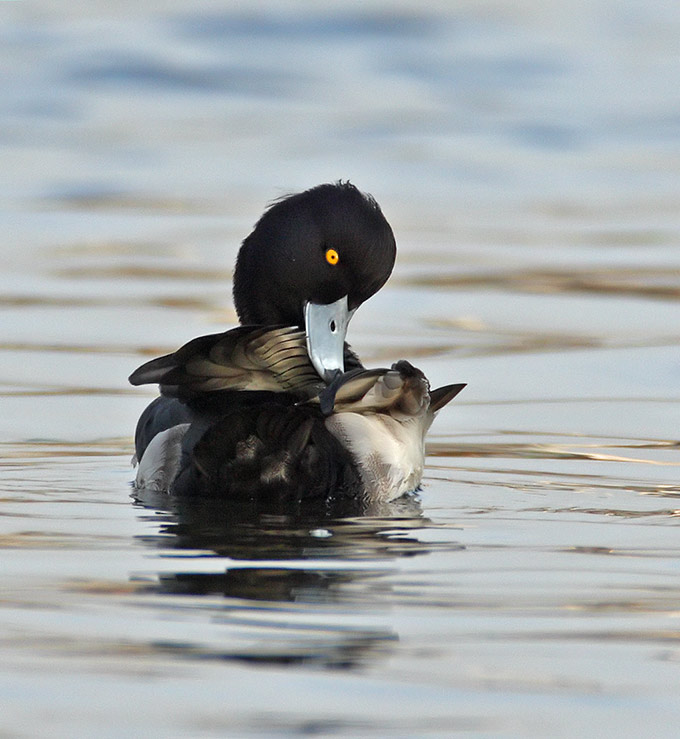
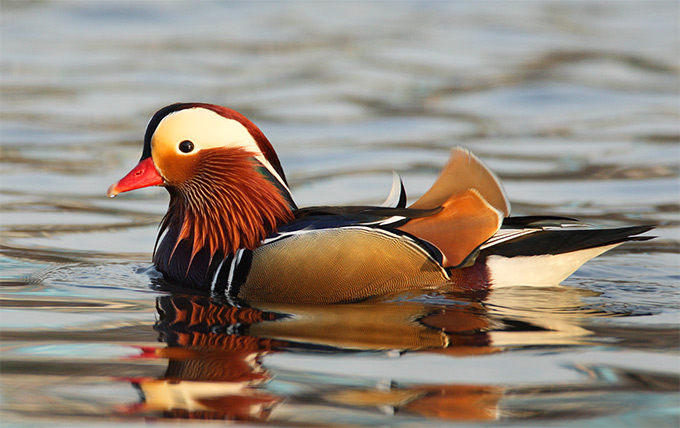
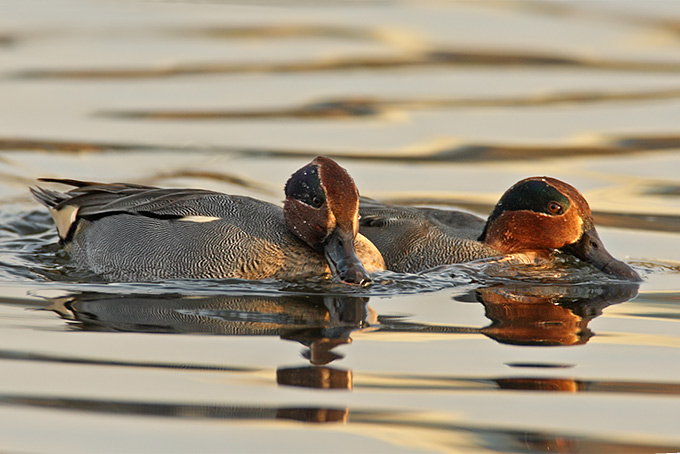


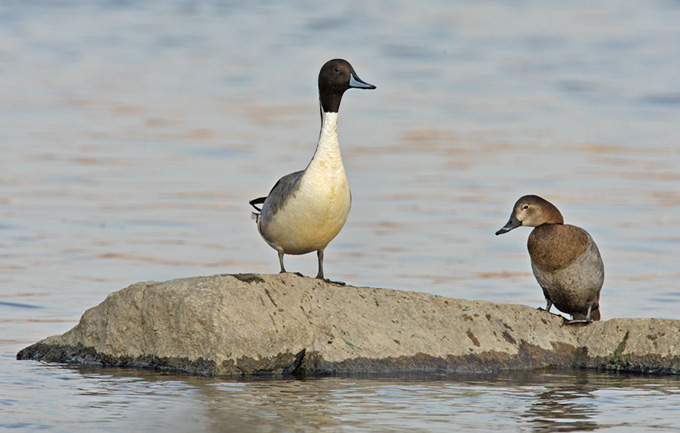

Jeju west coast, December 12
On a non-birding trip to Jeju's west coast, I spotted a Zitting Cisticola and a Pacific Reef Heron.
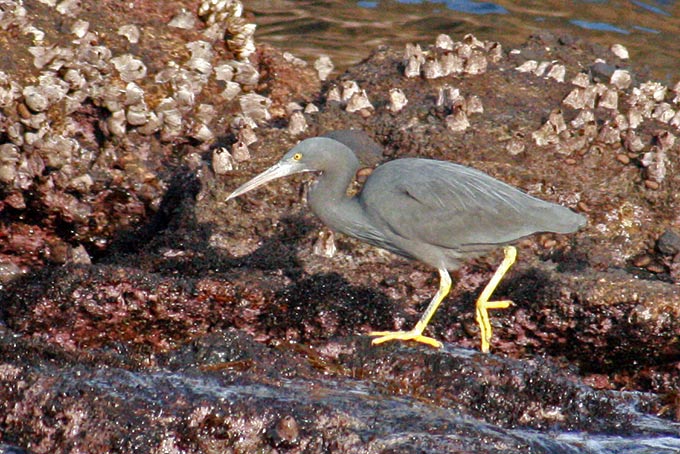
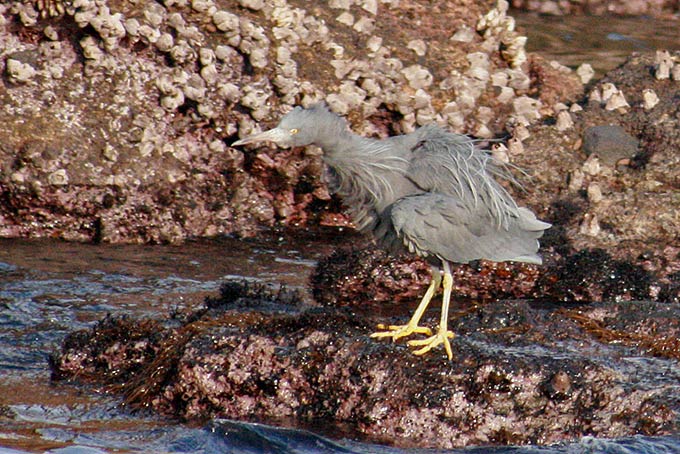
Nakdong Estuary AM & Nam River, Jinju PM, December 11
In patchy sunshine and mild temperatures a distant view of an immature Steller’s Sea Eagle was the obvious highlight. While there were decent numbers of gulls, numbers of other species (especially Whooper Swan, geese and ducks) in the estuary are well-down on previous winters, due in large part to a die-off in seagrasses caused by the construction of the Miyeonji/Ulseuk Do Bridge, the opening of the New Port, and the development of Miyeonji Ocean Town. On the Nam River near Jinju, a surprise find was a juvenile Hooded Crane, while other species of note included two Long-billed Plover, five Baikal Teal, several Little Bunting, a Common Starling, and in total c20 Cinereous Vulture. A further highlight was provided by the sighting of a River Otter, worryingly only a couple of hundred of metres away from the all-too familiar construction vehicles, ripping up riverside vegetation in preparation for yet more “bank strengthening”.
Joonam Reservoir PM, December 10
Heavy rain throughout most of the long drive down to the SE, followed by a few hours birding in dull, murky, wet and even foggy weather at Joonam. The time there was still remarkably productive, with brief views of two Common Starling, a Long-tailed Shrike (present here for a few weeks), four Swan Goose (out of eight or so present), 35 White-naped Crane, one or more probably two fairly distant Lesser White-fronted Goose, a Merlin and an apparent intergrade Bewick’s and Whistling Tundra Swan, with a “blackneb” bill pattern, which based on excellent videograbs provided by Mo In-Ho showed only very approximately 20% weak yellow at the bill base – considered intermediate between the percentage values of yellow expected in either pure Whistling or Bewick’s Swans (based on information found in Dr. Eileen Rees’ excellent Bewick’s Swan monograph, published in 2006).

Hwajin Po-Geojin-Coast, December 9
With forecast rain holding off until late afternoon a very good (relaxed-pace) day in the field, starting with an estimated 1500 loons south per hour from dawn (mostly Arctic and Pacific, with at least two Yellow-billed Loons: NM only). At Hwajin Po the first of three Chinese Nuthatch for the day heard, with a male and female later seen well further south, while from Geojin, one Common and at least three Brunnich’s Murres, four or five Long-billed Murrelets, more than a dozen Rhinoceros Auklet and a presumed Least Auklet (KG only), and excellent views of a wide range of passerines, including Siberian Accentor and an adult male Long-tailed Rosefinch. Other species of note included another adult Glaucous-winged Gull as well as 7+ Harlequin Duck and a Black Brant by the hotel.
NE River-Yangyang-Hwajin Po, December 8
With a milder dawn (of -5C), the personal first trip of the winter to the NE River, where happily there were seven Scaly-sided Merganser, with two pairs (one of which was seen displaying and then copulating) and one group of three females (perhaps two First-winters and one adult).At Yangyang, as in so many other places, more construction and habitat loss (yet another new riverside “park”) and unsurprisingly very few birds, with best a Rough-legged Buzzard and two probable Russet Sparrow. Near Hwajin Po, a Black Brant, and extremely close and prolonged views of a stunning male White-winged Scoter (the closet in a flock of 45 females and immatures) - frustratingly proving impossible to digiscope well through the ubiquitous fencing.

Photo © Nial Moores
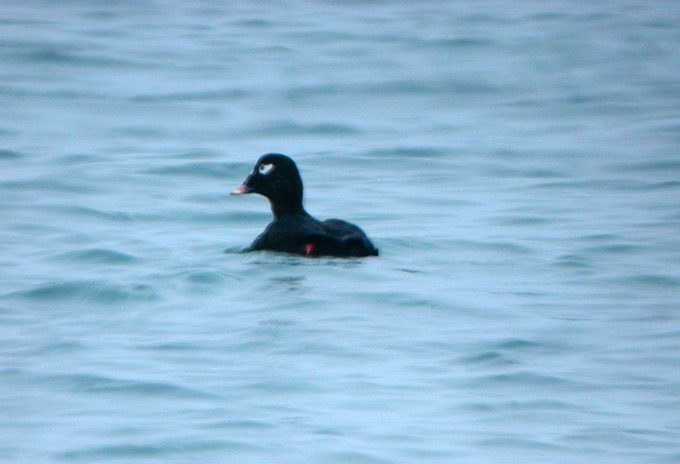
Junam Reservoir, December 8
Despite the cold, crisp conditions - with the reservoir frozen in places - a splash of summer was provided by two Hoopoes near the Junam 3rd Pumping Station, and no fewer than 14 Barn Swallows sunning themselves on a building by the road junction just south of the visitor centre. Given the extremely late date, these could well be wintering birds. Otherwise it was a quiet visit. Swan Geese have increased to 8, and among the abundant Smew there were 5 Common Mergansers, including 4 drakes. A Rustic Bunting was near Junam 3rd Pumping Station, where a Siberian Weasel was also seen.
Cheorwon-Arboretum, December 7
Perhaps the coldest dawn of the winter so far (-13C) did not spoil the spectacle of more than a hundred each of Red-crowned and White-naped Cranes flying out of their DMZ roost. Also present were an unseasonal male Chinese Grosbeak, two Pallas’s and three Long-tailed Rosefinches, c40 Hawfinch, and 1 or 2 strikingly pale male Meadow Bunting (considered to be wiegoldi). At the cholsei ponnun chip, little food available for the vultures, so only 40 or so Cinereous Vulture present, including one wing-tagged bird – either 11 or 11 on one wing and 111 on the other?- while there were 5 Baikal Teal and 20+ Smew on the reservoir. Arriving to find the arboretum closed, views from the road still produced two Solitary Snipe, one (or two?) male White-backed Woodpecker, a Brown Dipper and best surprise, a beautiful Amur Leopard Cat.
Read more on the dispersal of Cinerous Vulturs written by David Kenny, Nyambayar Batbayar, Purevsuren Tsolmonjav, Mary Jo Willis, John Azua & Richard Reading here (PDF-file).


Yeongjong-Paldang (Han River), December 6
In clear and crisp (and subzero) conditions, a Hoopoe over the road near the airport was an exceptionally unseasonal start to a week’s review of major birding sites. However, driving past kilometres of construction sites, a visit to the Han River just east of Seoul revealed yet more construction – a new high-speed bicycle road (colored green…) in addition to a separate paved walk way, and a digger apparently setting up riverside lights (greenhouse gas emissions AND increased disturbance). Perhaps unsurprisingly, no sign of the usual Steller’s Sea Eagle, instead two White-tailed Eagles, a Northern Goshawk, and a distant kettle of Cinereous Vulture in addition to a nice mix of other typical winter birds, including a Naumann’s Thrush, small flocks of Hawfinch and Rustic and Yellow-throated Buntings, and a herd of 30 Whooper Swan.
Yeongjeong Do, December 6
With a continuous presence of 'economic development' (on the mudflats & surrounding coastal fringes of the island, I was not sure about what would be seen once I got off the airport bus. The highlights were as follows: 22 Kentish Plover, 8 Hawfinch, 15 Grey-capped greenfinch, 1 Coal Tit, 1 Common Buzzard, and 2 lone Ruddy Shelduck (on the salt pans).
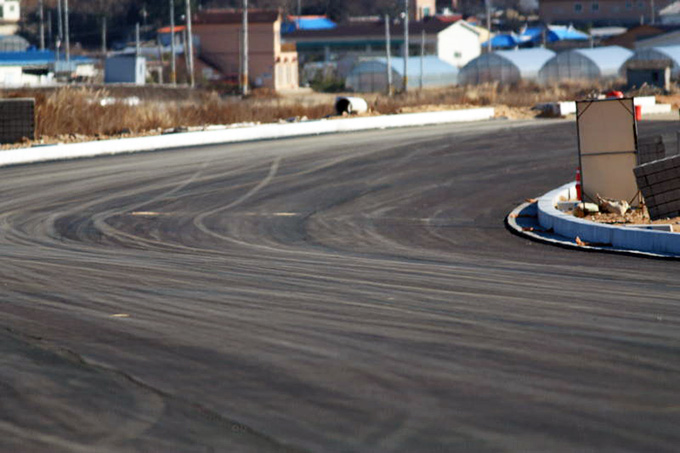
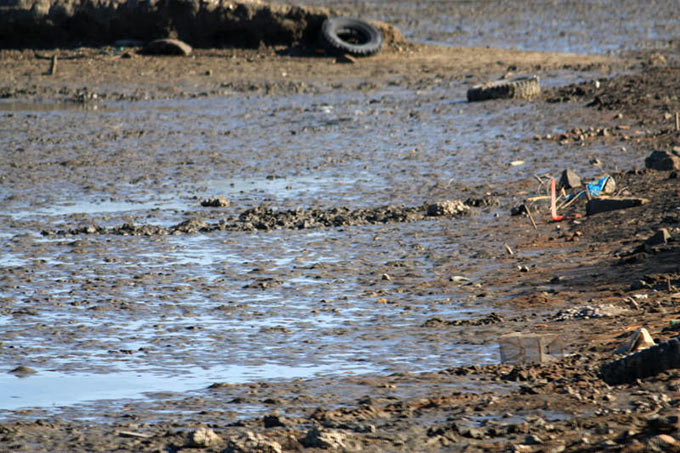

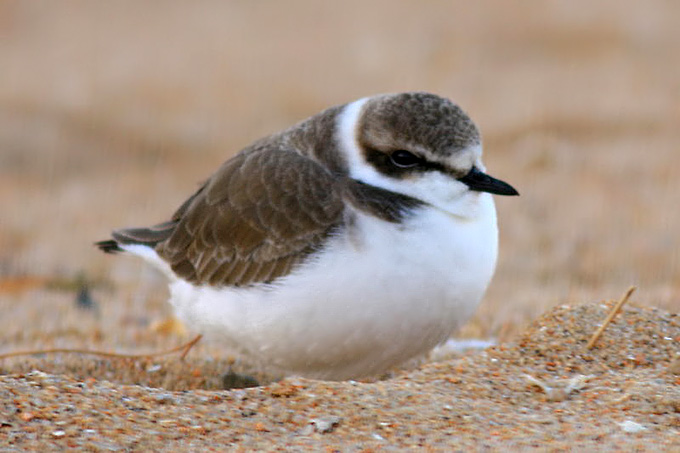
Shiripdae, December 6
Woods around Kyung-Hee university proved to be virtually devoid of birdlife, although a quick look in at Shiripdae revealed a Great Spotted & Japanese Pygmy Woodpecker, Long-tailed and Varied Tits, as well as the ever-present Eurasian Magpies. It appears that busy construction of new buildings and a public walkway through the forest has scared off a lot of the usual birds.
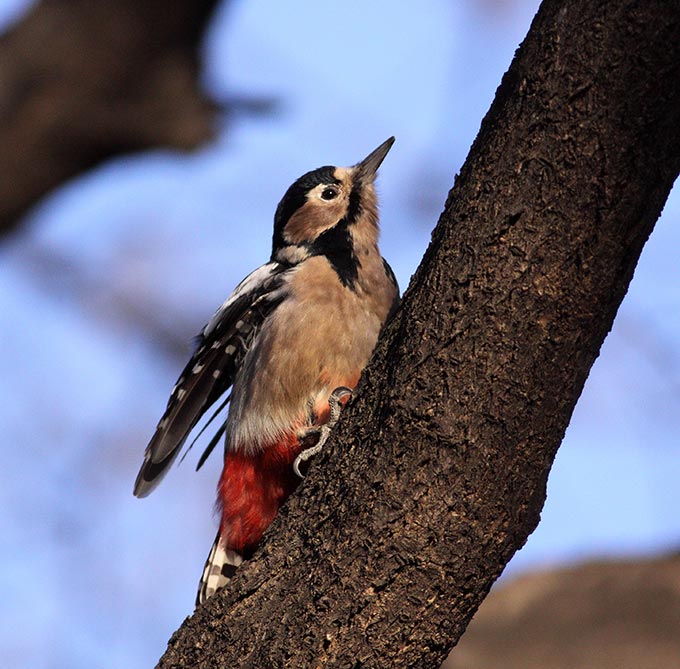

Seogwipo, Jeju island, December 5
A second Striated Heron that doesn't seem to mind Jeju's winter weather has been seen in Seogwipo. This one is a juvenile, and was seen on a different river than the adult that over-wintered last year.

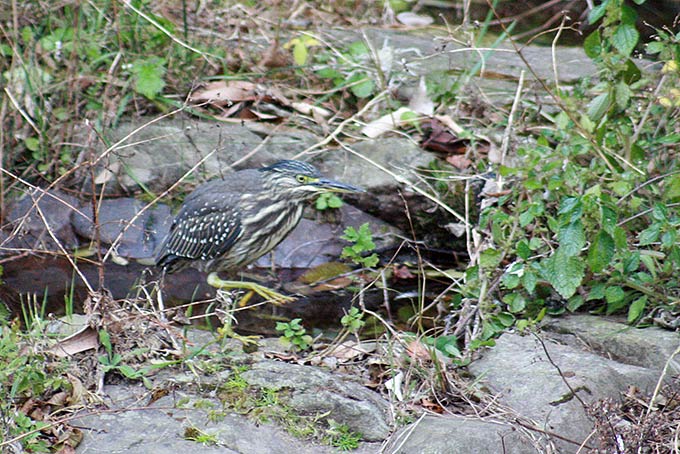
Junam Reservoir, December 4 & 5
2-hour visits on both mornings. Two Siberian Accentors gave fantastic views in waterside vegetation about halfway between the visitor centre and the observation tower. A Japanese Quail was flushed from beside the path near Junam 3rd Pumping Station. White-naped Cranes numbered 34 in rice fields north of the reservoir, while 6 Swan Geese were present on the main reservoir, and 107 Smew were counted on 5th. The retreating water level attracted waders, with two Eastern Black-tailed Godwits and two Dunlins present. A juvenile White-tailed Eagle was present on both dates, often perched in one of the dead trees in the middle of the reservoir. A Black-crowned Night Heron was flushed on 4th. There was no sign of last week's male Long-tailed Shrike, but a Korean birder reported having seen it earlier this week. The same birder also reported two Hooded Cranes with the White-naped Crane flock, "1 or 2" Lesser White-fronted Geese and a Eurasian Bittern. A Grey-headed Woodpecker was an odd sight clinging to the side of the visitor centre tower, while a Barn Swallow was still present around the bus stop, indicating probably overwintering in the area.
Jinju, December 3
I saw an immature Steller's Sea Eagle flying over the Namgang near Jinju today.
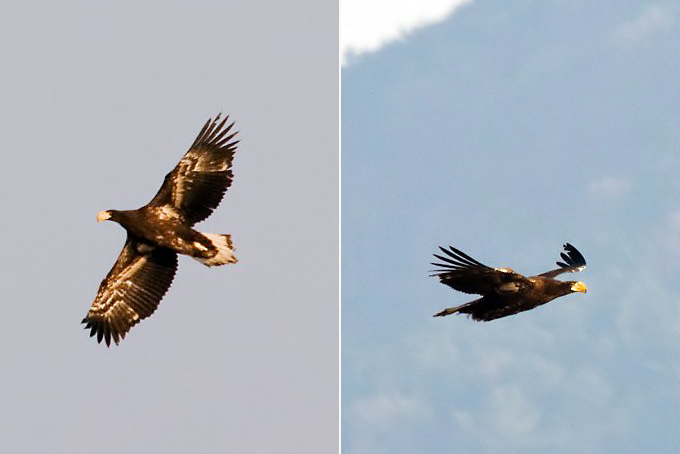
Seogwipo, Jeju island, December 3
On a chilly day in Seogwipo, a Striated Heron remains in a quiet spot on a small river. I have spotted this Heron on and off all year, skulking in riverside brush. Several Yellow-throated Buntings, Pale Thrush, and Little Grebes were seen in local parks. A Common Kingfisher was feeding at the river's edge, and Daurian Redstarts remain plentiful and noisy. In the field where the Scaly-breasted Munias were spotted, A Northen Goshawk, several Olive-backed Pipits, and a late Hoopoe, but the Munias appear to be long gone.

